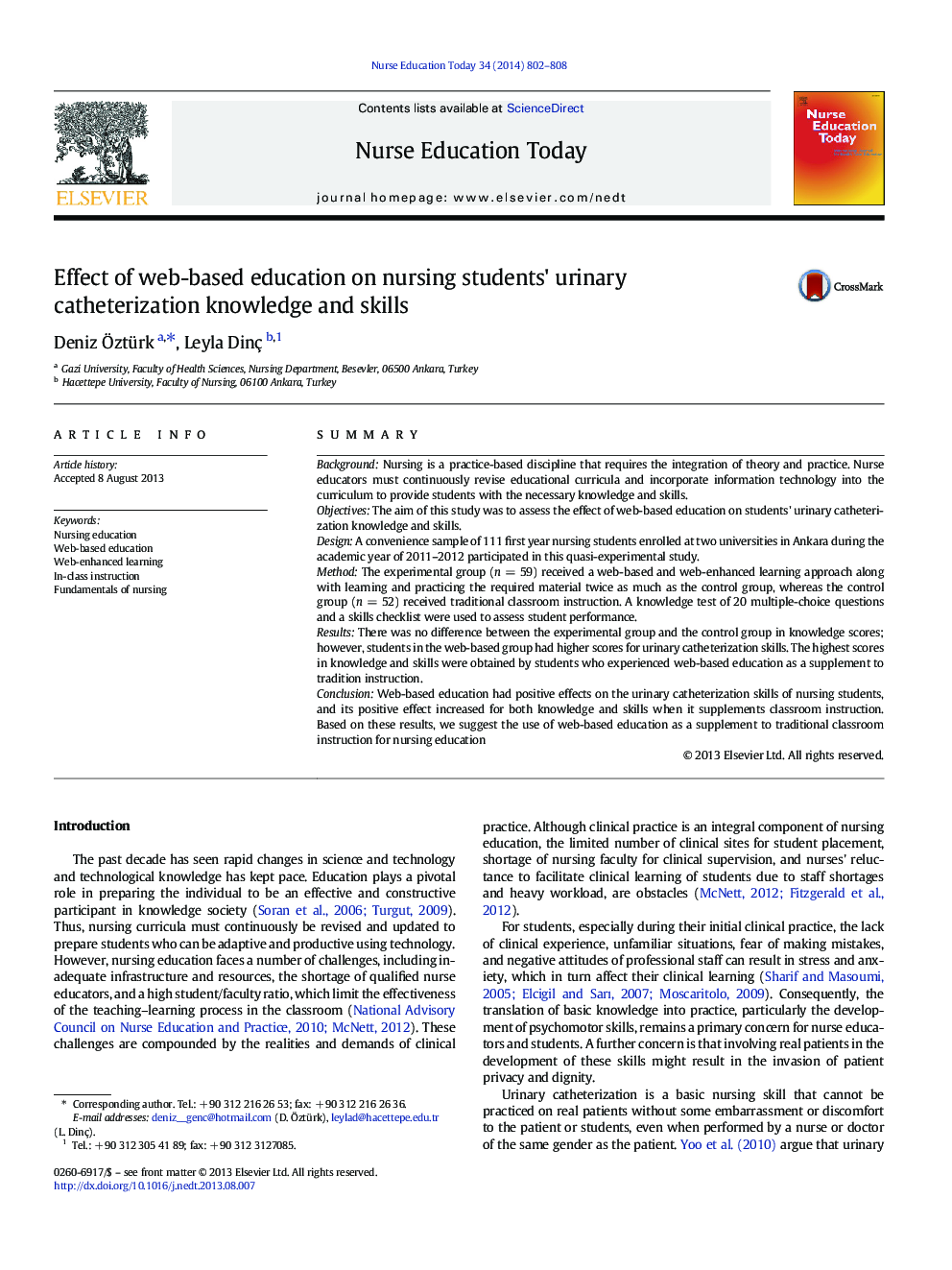| Article ID | Journal | Published Year | Pages | File Type |
|---|---|---|---|---|
| 368326 | Nurse Education Today | 2014 | 7 Pages |
SummaryBackgroundNursing is a practice-based discipline that requires the integration of theory and practice. Nurse educators must continuously revise educational curricula and incorporate information technology into the curriculum to provide students with the necessary knowledge and skills.ObjectivesThe aim of this study was to assess the effect of web-based education on students' urinary catheterization knowledge and skills.DesignA convenience sample of 111 first year nursing students enrolled at two universities in Ankara during the academic year of 2011–2012 participated in this quasi-experimental study.MethodThe experimental group (n = 59) received a web-based and web-enhanced learning approach along with learning and practicing the required material twice as much as the control group, whereas the control group (n = 52) received traditional classroom instruction. A knowledge test of 20 multiple-choice questions and a skills checklist were used to assess student performance.ResultsThere was no difference between the experimental group and the control group in knowledge scores; however, students in the web-based group had higher scores for urinary catheterization skills. The highest scores in knowledge and skills were obtained by students who experienced web-based education as a supplement to tradition instruction.ConclusionWeb-based education had positive effects on the urinary catheterization skills of nursing students, and its positive effect increased for both knowledge and skills when it supplements classroom instruction. Based on these results, we suggest the use of web-based education as a supplement to traditional classroom instruction for nursing education
